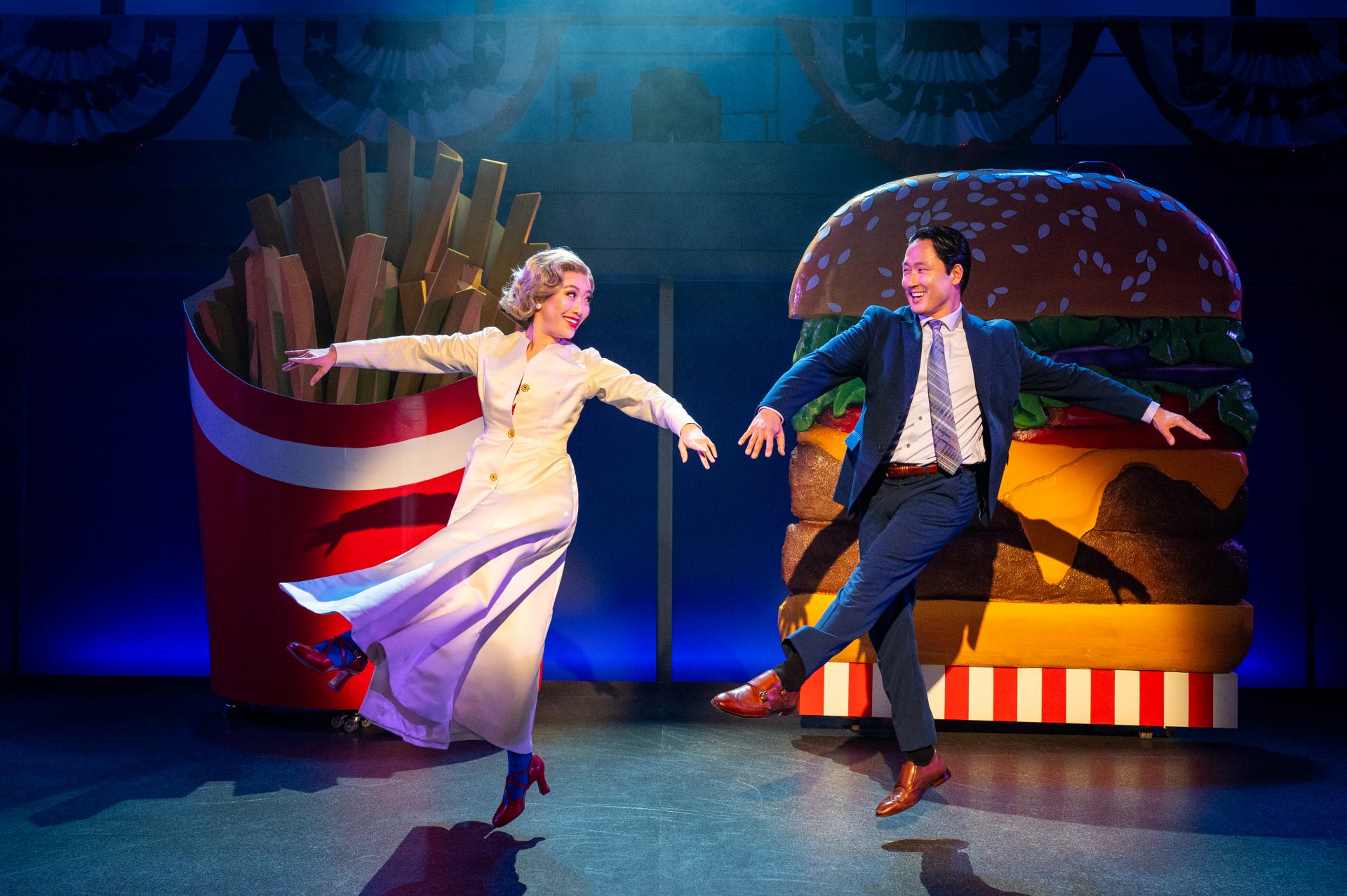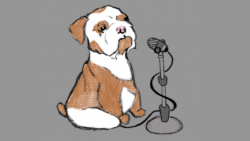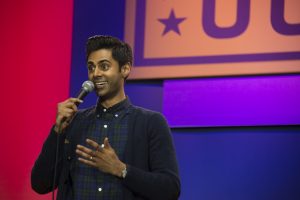Content warning: this article contains mentions of violence and anti-Asian sentiments.
As I read the words, “a Golden Age musical comedy about a Chinese theater producer and Hillary Clinton falling in love,” I knew I had to give Soft Power a shot.
Set in 2015, Soft Power was originally written in the wake of Donald Trump winning the 2016 presidential election. The 2024 iteration at the Signature Theater in Arlington, Virginia is new and improved; this reboot includes a number of substantial changes, including an all Asian-American cast, scenes about the COVID-19 pandemic and Jan. 6 riots, and distilling the show into a more focused 90 minutes. Though the premise of the show seems surreal—and trust me, a song and dance about the ballot box while it steams like a witch’s pot is pretty surreal—Soft Power shines in its execution and fourth-wall breaking commentary.
The show opens with a meeting between producer Xūe Xíng (Daniel May) and playwright DHH (Steven Eng). For the part year, DHH has attempted to write a musical about a cultural exchange between the United States and China á la The King and I. With a wish to write a musical to critique Chinese values—which stems from a desire to assimilate into American culture—DHH feels he’s at an impasse with his superiors’ desires and his own artistic passion. Leaving the meeting in a huff, a masked stranger targets DHH in a hate crime and critically injures him. As he fades out of consciousness, he begins to dream, where the vast majority of the musical plays out (pun intended).
DHH’s musical-inside-a-musical follows the journey of Xíng immigrating from China to start a theater company, where he is greeted by a caricatured version of the United States. From people dressed in Elmo costumes to random rappers in New York to Hillary Clinton (Grace Yoo) singing and dancing in a McDonalds, Xíng is accosted by a bustling, dramatized version of America. As such, much of the creative energy of the show is channeled toward an absurdist take on various political phenomena and culture in the United States.
Art pieces that lean too heavily on the fantastical aspects of their project have a tendency to lose their meaning amid the chaos—one could even say they “lose the plot.” Fortunately, avoiding this pitfall entirely, Soft Power uses irony as a tool to illustrate the bizarreness found in lives of everyday Americans. Johnny Lee Jr., a cast member who plays Bobby Bob, even described the show as “a live action political cartoon,” an incredibly accurate metaphor for this performance.
One particularly notable moment is when Clinton speaks, sings and dances at a rally. Likely a commentary on how a political campaign often feels more like a performance than a logical appeal to the American people, Soft Power as a show is strong in its ability to showcase critique in a comical manner. While the singing and dancing in this number is excellent all the way around, Grace Yoo as Clinton is most certainly a show-stopper. Her vocal prowess and overall performance set her aside as a powerhouse and a clear talent. Not only did she effortlessly hit some of the highest notes in the show with such clear tone quality, she easily convinced the audience that she was, in fact, Hillary Clinton through her mannerisms and voice. From all angles of comedy, vocal performance, and acting, she stole the show.
Alongside its satirical nature, the commentary for Soft Power does not feel outdated for a musical set in 2015; many of the details feel applicable to our current moment in American history. When “Not Hillary Clinton” (as Trump is referred to in the musical) wins the election, a wave of Anti-Asian American sentiments, its raucous riots, and unabashed declarations of racism soon ensue; all of which evoked a similar feeling that surrounded the Jan. 6 riots. At the height of the chaos, the masked stranger stabs Steven once again, showcasing how even in a fantastical setting, political violence has a tangible impact.
While the show is littered with moments of hilarity, the show comes to an end as DHH wakes up from his feverish fantasy with an idea for a musical. All cast members, dressed in street clothes, break the fourth wall as DHH, now speaking as playwright David Henry Hwang, details how Soft Power was inspired by his own brush with death: DHH’s stabbing mimics the one Hwang endured. Left with a severed artery, Hwang took Soft Power as a plan to approach the future with both face and heart—a motif throughout the musical designed to represent an embracing of both Chinese and American values of mutual respect and passion. With such a stripped down and emotional end to the performance, the distance between cast and audience was shattered. Audience members were no longer passive participants but were able to exist with the cast on a human-to-human level.
The only downside of Soft Power is that it ends with a fairly scathing critique of Chinese politics while warmly embracing American democracy. For a show with a fairly prominent emphasis on recognizing the values of both Chinese and American values and culture, it ends with a bit of an imbalanced perspective. Though the musical is very hard on America and the beliefs it espouses, there is always more time allotted to showcase the promises and hopes associated with the country. With less airtime, nuance about Chinese culture and politics felt like an afterthought; the potential upsides and downfalls associated with it were not well fleshed out.
Nevertheless, the show generally does a good job of explaining the ups and downs associated with American democracy. Playwright David Hwang ends the show with this quote: “When the worst thing happens, but you survive, you feel like you can do anything.” Another moment where this idea, while certainly pertinent when it was written, feels even more pressing now.
I came away from Soft Power recognizing all of the issues associated with the country I call home, but ready to fight to make it more like the world I want to live in. The message that Soft Power propagates is rather universal. Going into yet another period of harmful rhetoric and tumultuous happenings, Soft Power emboldens others to face the world both face and heart.







